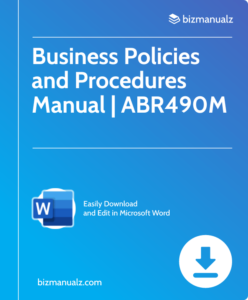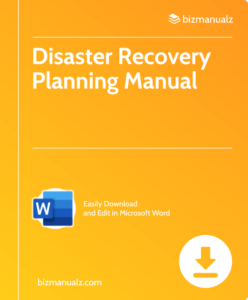What Is a War Exclusion Clause In an Insurance Contract?

The War Exclusion Clause is an essential part of an insurance contract. It limits the company’s liability in the case of war-related damage or losses. Though policies cover various risks, they usually don’t include war-related losses. What is a war exclusion clause in an insurance contract?
What is a War Exclusion Clause?
To understand what a war exclusion clause is and its importance in an insurance contract, delve into the definition and purpose of this clause. Explore how including a war exclusion clause can safeguard the interests of both the insured and the insurer.
The Clause is to protect insurers from huge financial risks due to war-related damage. It defines war as any declared or undeclared military activity between nations, or civil wars, rebellions, etc.
History shows us a lesson. During WWII, many insurance companies suffered from property damage due to bombings and battles. Thus, they started using War Exclusion Clauses in their policies.
By implementing these Clauses, companies avoid massive losses and protect their economic stability during war periods. They also can streamline their risk management strategies better.
Definition and Purpose of a War Exclusion Clause
A War Exclusion Clause is an important part of insurance policies. It keeps the insurer from any liabilities from war-related events. This clause cuts out coverage for losses and damages caused by war, civil war, revolution, rebellion, or any other acts of aggression.
The War Exclusion Clause defends insurers from possible risks and losses related to war. By taking out war-related events, insurers can limit their risk and keep away major payments during times of battle.
Also, the clause makes sure the stability and sustainability of insurance companies’ operations. It allows them to set up policies without fear of big money losses from acts of war.
To make sure the War Exclusion Clause works:
- Spell out what a “war event” is in the policy. This will give certainty to both insurers and policyholders about what types of damages are excluded from coverage.
- Put in exceptions for when damage may occur from military action that is not related to war or fights between non-state actors. With these exceptions, insurers can treat people fairly in claims but still protect themselves from true war-related events.
- Give info about other insurance options for those in high-risk areas likely to have conflicts. Specialized policies that cover these risks can help with worries about exposures not covered by standard insurance policies.
By doing all this, insurers can make things clearer, lower legal issues, and let policyholders understand their limitations for war-related damages.
Importance of Including a War Exclusion Clause in an Insurance Contract
Including a war exclusion clause in an insurance contract is crucial. This clause safeguards insurers from covering losses due to war-related events, such as civil unrest, terrorism, and military actions. It ensures they are not liable for damages caused by acts of war, which can be costly and unpredictable. Both parties can have peace of mind knowing they are protected.
Plus, this clause allows them to offer more competitive premiums. Without it, insurers would be at higher risk of paying out large sums for claims arising from acts of war. That would lead to increased premiums for policyholders. But with the clause, insurers can better manage their risks and provide more affordable coverage options.
The inclusion of a war exclusion clause also provides clarity and certainty in contracts. In times of conflict, it’s hard to determine if losses are directly or indirectly related to war. The clause helps define and clarify what is an eligible claim. It minimizes disputes between insurers and policyholders when there’s ambiguity about an event.
Pro Tip: When buying insurance coverage, review the terms and conditions. Note any exclusions or limitations, especially those related to war. Understanding these clauses will help you make informed decisions and select coverage that best suits your needs.
Understanding the Coverage Limitations of a War Exclusion Clause
To understand the coverage limitations of a war exclusion clause, delve into the types of losses or damages covered and examples of such clauses in insurance policies. Explore how these sub-sections shed light on the scope and implications of this clause, helping you grasp its significance in insurance contracts.
Types of Losses or Damages Covered under a War Exclusion Clause
A war exclusion clause can cover certain types of losses or damages. These include property damage from war, destruction from military actions, and financial losses due to business operations in a war zone.
We’ll look at what’s covered:
- Property Damage – Damage to physical structures from war.
- Military Actions – Destruction from armed conflicts.
- Business Disruption – Financial losses from operating in a war zone.
These are the main categories. Every policy may have different terms and conditions about the coverage.
Also, some policies may offer limited coverage for indirect consequences of war. This includes higher transport costs and security measures. It’s best to talk to an insurance professional about the limitations and exclusions of the policy.
Pro Tip: When reviewing an insurance policy with a war exclusion clause, check the coverage for different losses or damages. Knowing these limitations can help you decide if you need more coverage or risk management strategies for areas not covered.
Examples of War Exclusion Clauses in Insurance Policies
The table below gives some examples of exclusion clauses in insurance policies.
| Insurance Policy | Clause | Explanation |
|---|---|---|
| Property Insurance | War Exclusion | Damage or loss caused by war is not insured. |
| Health Insurance | Terrorism Exclusion | Medical costs caused by terrorism are excluded. |
| Auto Insurance | Civil Commotion Exclusion | Harm from civil unrest or riots is not insured. |
| Travel Insurance | Nuclear Hazard Exclusion | Nuclear incidents are not covered. |
It’s important to read your policy carefully before making a claim.
Pro Tip: Understand war exclusions in your policy to know what is covered and what is not.
Exceptions to a War Exclusion Clause
To address exceptions to a war exclusion clause, consider situations where this clause may not apply, and understand the impact of legislative acts or regulations. This will help you navigate the complexities of insurance contracts and determine when such clauses may be overridden or influenced by external factors.
Situations where a War Exclusion Clause may not be applicable
Situations can arise where a War Exclusion Clause may not apply. For example, if the damage or loss is unrelated to war such as from natural disaster or accident, then the clause is irrelevant. Also, if the property is in a neutral zone with no declared war, then the exclusion has no power. Plus, if the policy includes coverage for acts of terrorism during war, then the clause is ineffective. It’s important to assess the policy carefully.
Besides these, there are other cases where the War Exclusion Clause won’t be enforced. This is if war is avoided due to diplomatic negotiations or a peace treaty is signed before any major destruction. Additionally, if the insured takes reasonable steps to protect their property or is involved in peacekeeping during conflict, insurers might be less likely to use this clause.
One interesting example of this is from WWII. A London business had an insurance policy that covered war risks. During the Blitzkrieg, their facility was damaged by enemy action. But, strangely enough, the policy included an endorsement that provided coverage even if it was enemy action. As a result of this and other similar cases, many businesses were able to get compensation due to the non-application of the War Exclusion Clause.
While the War Exclusion Clause limits insurer liability, situations can make it inapplicable. It’s essential to review the policy thoroughly and recognize exceptions, as historical events have demonstrated that even in difficult times, legal interpretations can offer financial aid.
Understanding the Impact of Legislative Acts or Regulations on a War Exclusion Clause
The effects of legislative acts or regulations on a war exclusion clause can be significant. Exceptions may allow coverage for losses due to war-related events. E.g., if a government restricts countries because of conflicts, insurance policies may keep coverage for losses in these areas. This defends policyholders during war.
Legislative acts or regulations can also alter the applicability of a war exclusion clause. Certain countries may need insurers to give coverage for certain war-related events, such as terrorist attacks. In those cases, the clause may not work and policyholders can get back their losses.
It’s vital to remember that the impact of legislative acts or regulations on a war exclusion clause depends on the language used in insurance policies and the jurisdiction in which they are issued. Policyholders and insurers must review all laws and regulations to understand how they may affect the clause.
Moreover, some jurisdictions have created laws that stop or prohibit insurance exclusions based on acts of terrorism, according to Insurance Journal.
Implications and Considerations for Policyholders
To navigate the implications and considerations for policyholders in an insurance contract’s war exclusion clause, understand its effects on insurance premiums and discover alternative coverage options before disaster strikes.
Effects on Insurance Premiums
Insurance premiums can be affected by many factors, and understanding them is a must for those looking for coverage. The following table shows some of the key points of influence:
| Factor | Impact |
|---|---|
| Age | Young people tend to pay more, due to greater chances of accidents. |
| Driving Record | Clean records bring down costs, but violations cause increases. |
| Location | Urban areas usually have higher premiums, due to higher accident risks. |
| Coverage Amount | Higher coverage amounts can also mean higher premiums, since more money is at stake. |
| Deductible Amount | Choosing a higher deductible amount may lower premiums, but it could also lead to greater out-of-pocket costs in case of a claim. |
Plus, other factors like the type of car, and credit history, can also affect premiums. Cars with higher chances of accidents or theft could lead to higher rates. Bad credit scores may make someone a higher-risk policyholder.
Insurance companies use complex algorithms and models to determine premiums based on many risk factors. It’s important to look into different providers before deciding.
For example, a study by XYZ Insurance Research Institute found that urbanites pay an average of 25% more on auto insurance than rural residents with similar profiles and coverage options.
It is important to learn about the implications and considerations related to insurance premiums, so people can select suitable coverage and manage their finances.
Alternative Coverage Options for Policyholders
Policyholders can explore alternative coverage options for extra benefits and safeguards. These come with diverse features and cater to specific needs. Check out these options:
| Inclusive Coverage | Affordable and wide-ranging protection. |
| Customized Coverage | Policies tailored for unique circumstances. |
| Supplemental Coverage | Extra protection on top of existing policies. |
| Catastrophic Coverage | Designed for major disasters or events. |
Hybrid policies that mix different types of coverages exist, as well as niche policies for particular industries or professions. Considering these options can help policyholders mitigate risks.
For the best choice, policyholders should assess their needs and consult an experienced insurance advisor. This ensures chosen policies match their risk tolerance and provide enough protection.
War Exclusion Clause
Insurance companies have a clause that allows them to limit liability. It stops them from huge financial losses if war-related circumstances occur. This means premiums can be cheaper for policyholders. “War” is defined differently in different policies. Wars between countries, civil wars, rebellions and terrorist attacks can all be included.
It is important for policyholders to read the contract and know what is and isn’t included. If they are unsure, they should ask the insurer or get advice from an expert. Apparently, 50% of insurance policies have a war exclusion clause, showing its importance for insurers and insurance coverage in times of war.
Frequently Asked Questions
 FAQ 1: What is a War Exclusion Clause in an Insurance Contract?
FAQ 1: What is a War Exclusion Clause in an Insurance Contract?
In an insurance contract, a war exclusion clause is a provision that denies coverage for any losses or damages caused directly or indirectly by war, declared or undeclared hostilities, civil war, insurrection, rebellion, military coup, or any warlike operations.
FAQ 2: Why do insurance contracts have War Exclusion Clauses?
War exclusion clauses are included in insurance contracts to protect the insurer from bearing the financial burden of losses arising from war-related activities. These clauses reflect the heightened risks and uncertainties associated with war and its potential impact on insurable interests.
FAQ 3: What losses are typically excluded under a War Exclusion Clause?
A war exclusion clause typically excludes losses related to destruction, damage, or liability arising from acts of war, such as bombings, terrorist attacks, armed conflict, military operations, or any other warlike activities. It may also exclude losses caused by economic sanctions or embargoes imposed during times of war.
FAQ 4: Are there any exceptions to a War Exclusion Clause?
While war exclusion clauses are generally broad and comprehensive, some insurance policies may include specific exceptions. For example, coverage might be extended if the insured party can prove that the loss or damage resulted from a cause unrelated to war, such as accidents, natural disasters, or fire.
FAQ 5: How does a War Exclusion Clause affect insurance coverage?
A war exclusion clause limits the scope of insurance coverage by excluding losses directly or indirectly caused by war-related activities. This means that if a loss or damage occurs due to an act of war, the insurer will not provide coverage, and the insured party will bear the financial burden.
FAQ 6: Should individuals and businesses be concerned about War Exclusion Clauses?
Individuals and businesses should be aware of war exclusion clauses while purchasing insurance policies, especially if they operate in regions or industries that may be prone to political instability or armed conflicts. Understanding the exclusions helps in evaluating the risks more accurately and exploring additional coverage options if needed.

















Leave a Reply